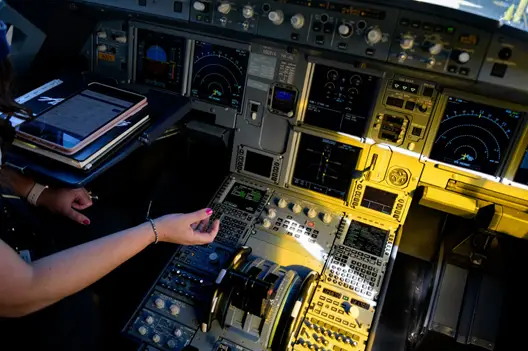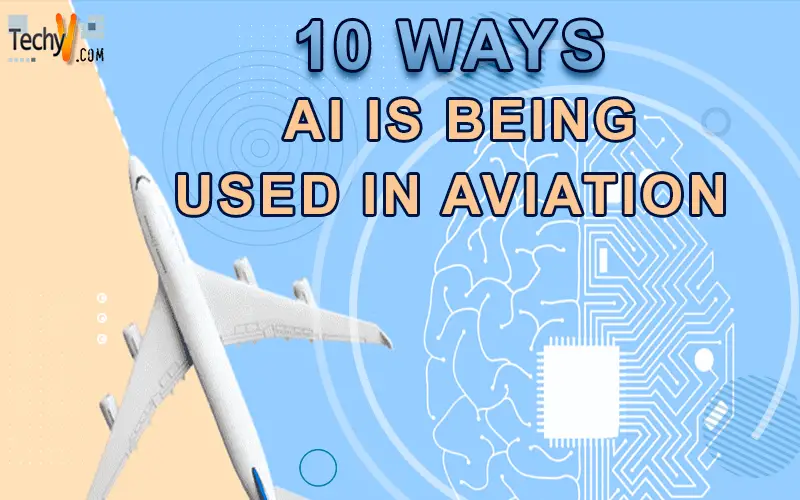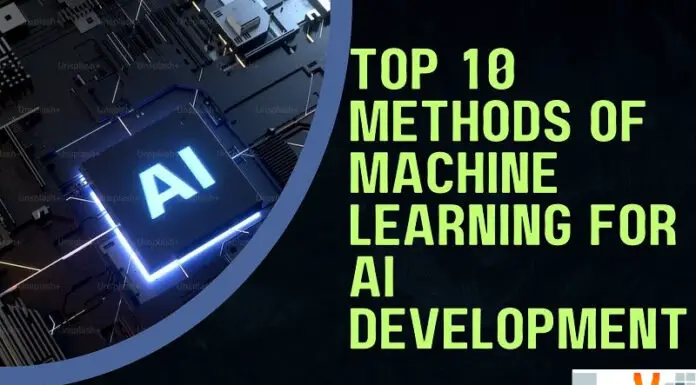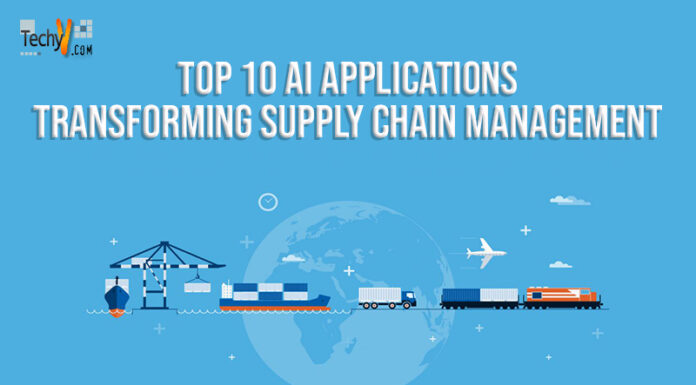AI systems make use of a range of datasets. Technologists are using machine learning to analyze data for airport security and spot threats faster than humans. Passing through security checkpoints, passengers can keep things that formerly required separate scanning in their checked luggage.
1. Revenue Management
Revenue management (RM) is the application of data and analytics to define how to offer a product to those who need it at a reasonable cost, at the appropriate time, and through the correct channel. Revenue management professionals employ artificial intelligence to establish destinations, modify rates for specific markets, and manage seats to maintain the airline competitively and customer-friendly.
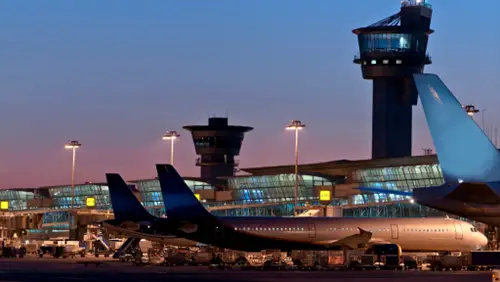
2. Messaging Automation
When a disruption happens, such as a flight delay or baggage loss, travelers become anxious. And if passengers do not receive a fast answer or explanation of an issue from an airline agent, they are unlikely to use this airline for their next trip. AI software, such as Coseer from Arbot Solutions, uses algorithms to analyze natural language or unstructured text to speed up and simplify the workflows of customer service agents.
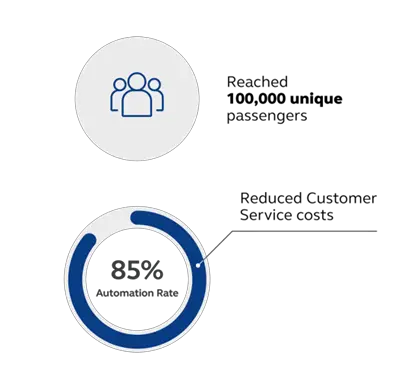
3. In-Flight Sales And Food Supply
Many imagine flying while eating a sandwich, drinking coffee, and admiring the passing clouds and bright blue sky. Meanwhile, supply management experts determine how much you may bring food and drinks on board without being wasteful. AI is also here to assist.
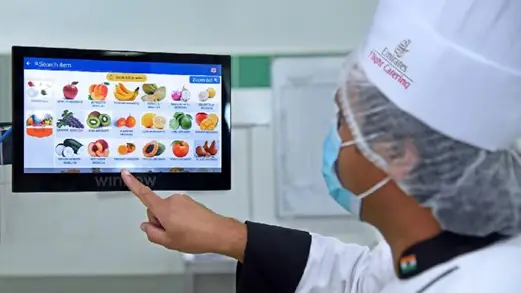
4. In-Airport Self-Service
The COVID-19 epidemic accelerated the adoption of many contactless technologies to unprecedented levels. Installing self-service check-in kiosks was only the first step in automating the passenger journey. Today, airlines and airports use end-to-end systems across various terminals to facilitate and expedite passenger flow from check-in to boarding.
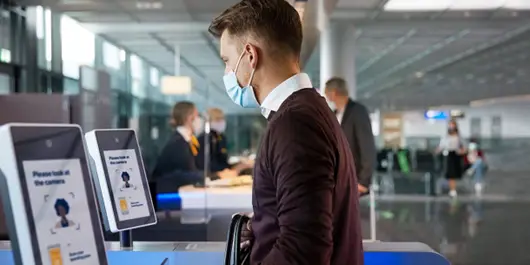
5. Feedback Analysis Of Customers
Using AI for feedback analysis and market research enables airlines to make educated decisions and satisfy the expectations of their consumers. AI assists in providing rapid responses to passengers in the event of a flight delay or baggage loss, alleviating the passengers’ concerns. Customers will return to the airport if they receive prompt responses to their inquiries.
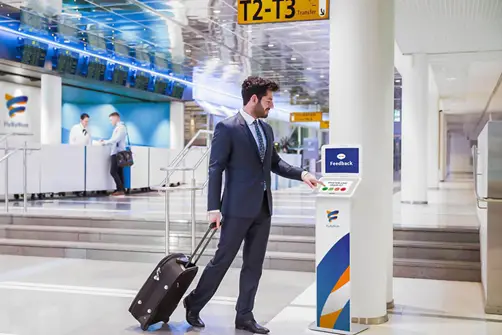
6. Air Safety And Airplane Maintenance
Airlines physically endure substantial expenditures due to delays and cancellations, including maintenance costs and compensation for passengers detained in airports. With unscheduled maintenance accounting for over 30 percent of total delay time, predictive analytics is a viable option for fleet technical assistance. Shane Ballman, former manager of Maintenance Systems & Technology at AirTran Airways and CEO of AI company SynapseMX, Inc, developed a platform that uses historical and real-time data to quickly assist maintenance workers in making technical choices.
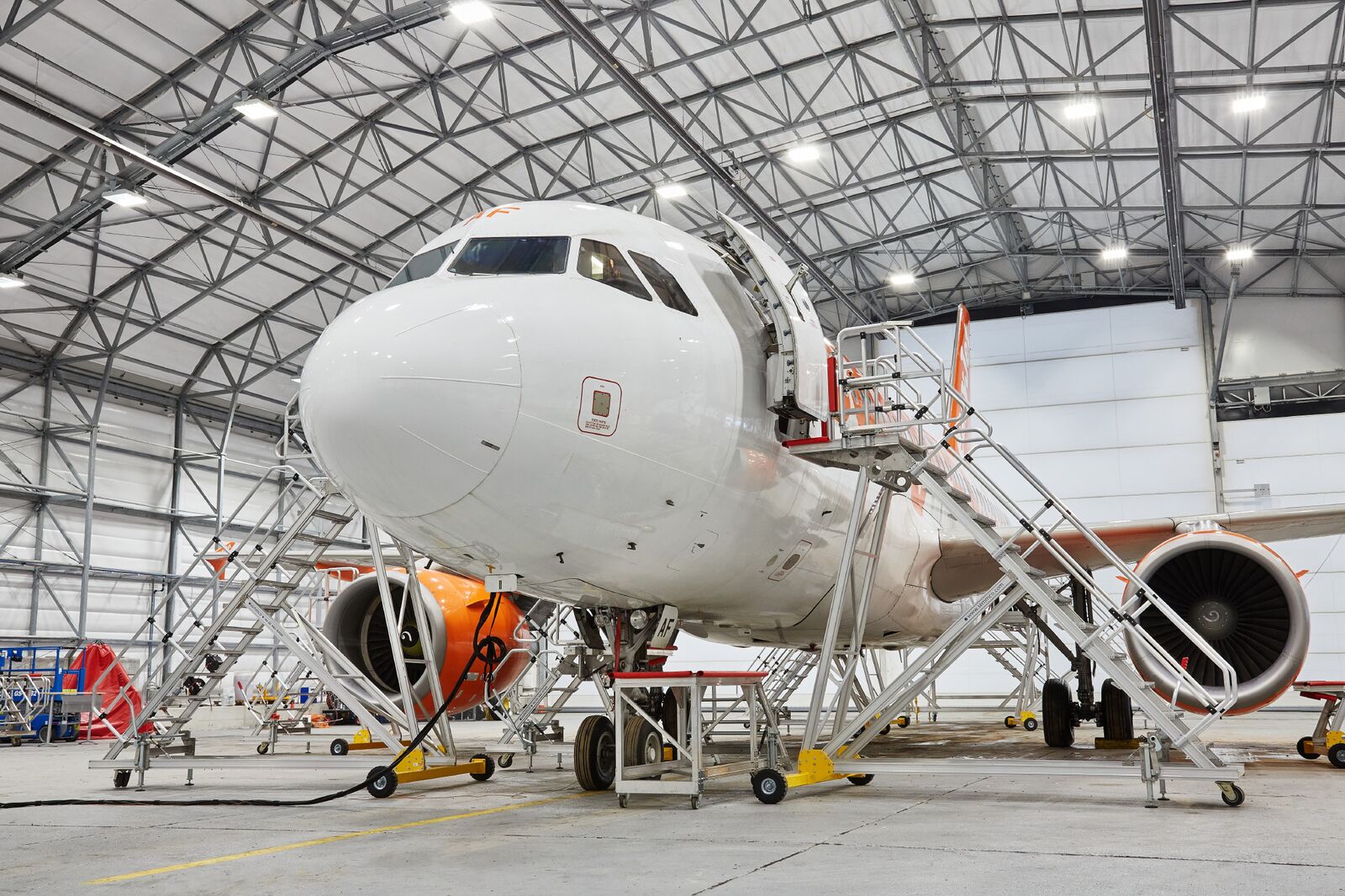
7. Crew Management
Some crew management solutions address the tiredness risk that pilots face due to repeated time zone shifts, long duty days, scheduling changes, and other “perks” of working in the aviation sector. For example, Jeppesen’s Crew Rostering system engineers began incorporating bio-mathematical weariness models into flight crew scheduling software.
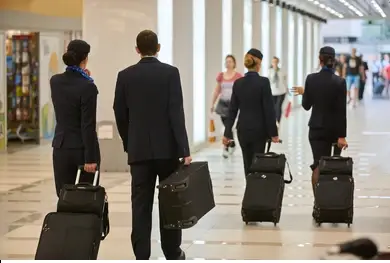
8. Fuel Efficiency Optimization
Global aviation accounts for about 2% of all anthropogenic carbon dioxide (CO2) emissions. That is why aircraft manufacturers and airlines work hard to increase fuel efficiency. Airlines collect and analyze flight data using AI systems with built-in machine learning algorithms. Systems evaluate the appropriate fuel required for a flight based on data results.
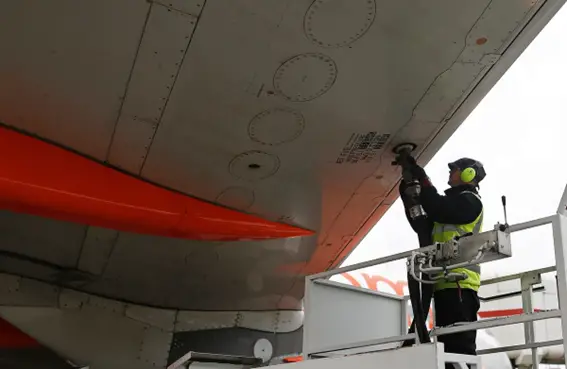
9. Fraud Detection
According to IATA, airlines lose about $1 billion yearly due to payment fraud. Several fraudulent techniques exist, such as using stolen credit cards, claiming reimbursement for “lost” baggage, and forming bogus online travel firms. Airlines use powerful, AI-based analytics tools to evaluate data from numerous sources and detect fraudulent transactions, in addition to improving user authentication and payment security.
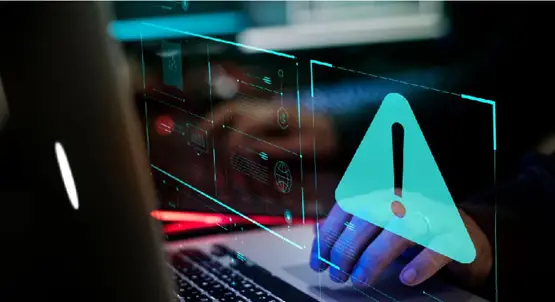
10. Flight Management Autonomous Taxi Service, Take-Off, & Landing In The Future
Self-driving or autonomous vehicles are no longer the stuff of science fiction. Waymo and Google pioneered driverless cars years ago, predicting a bright and prosperous future with numerous application areas. As of now, new AI platforms like Flyways employ real-time data from many sensors and external sources to help flight management and improve flight paths.
